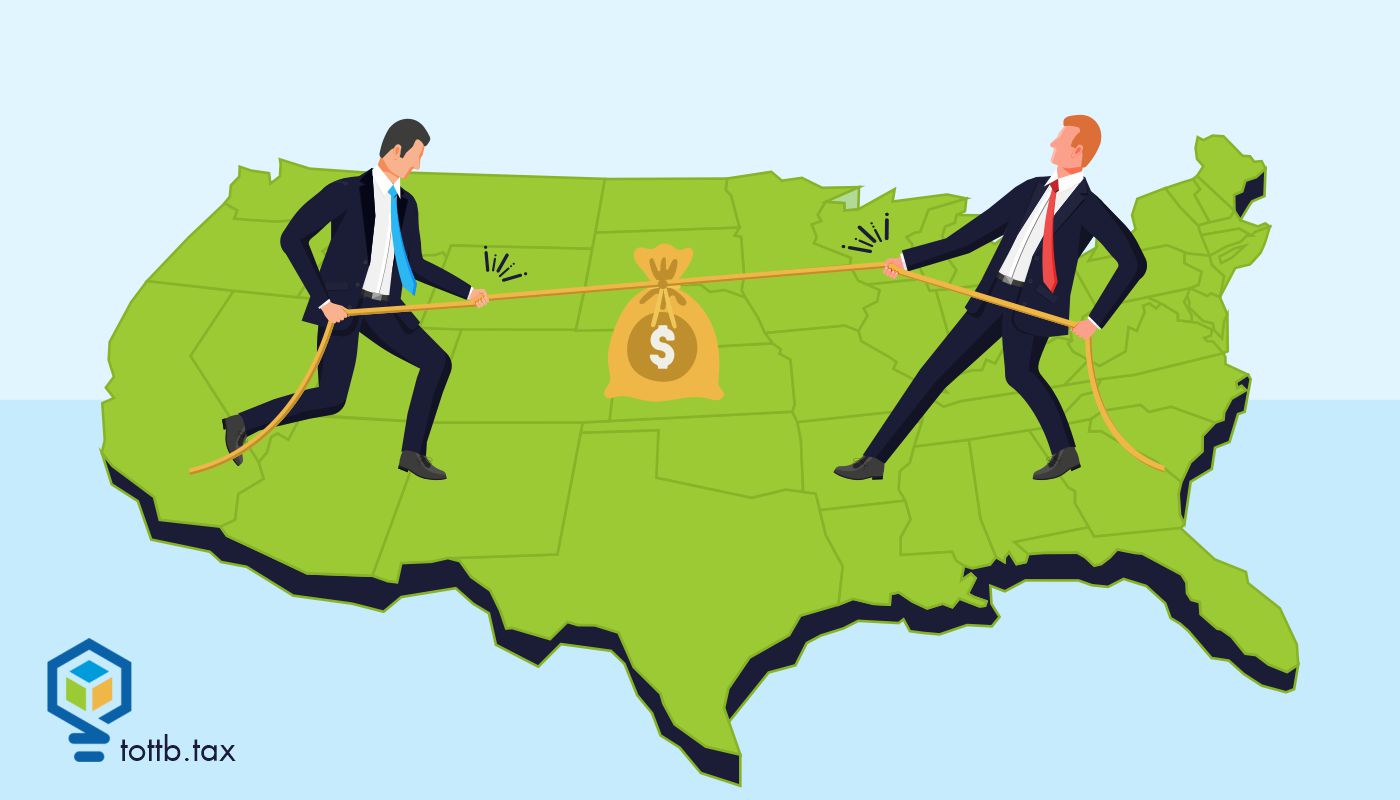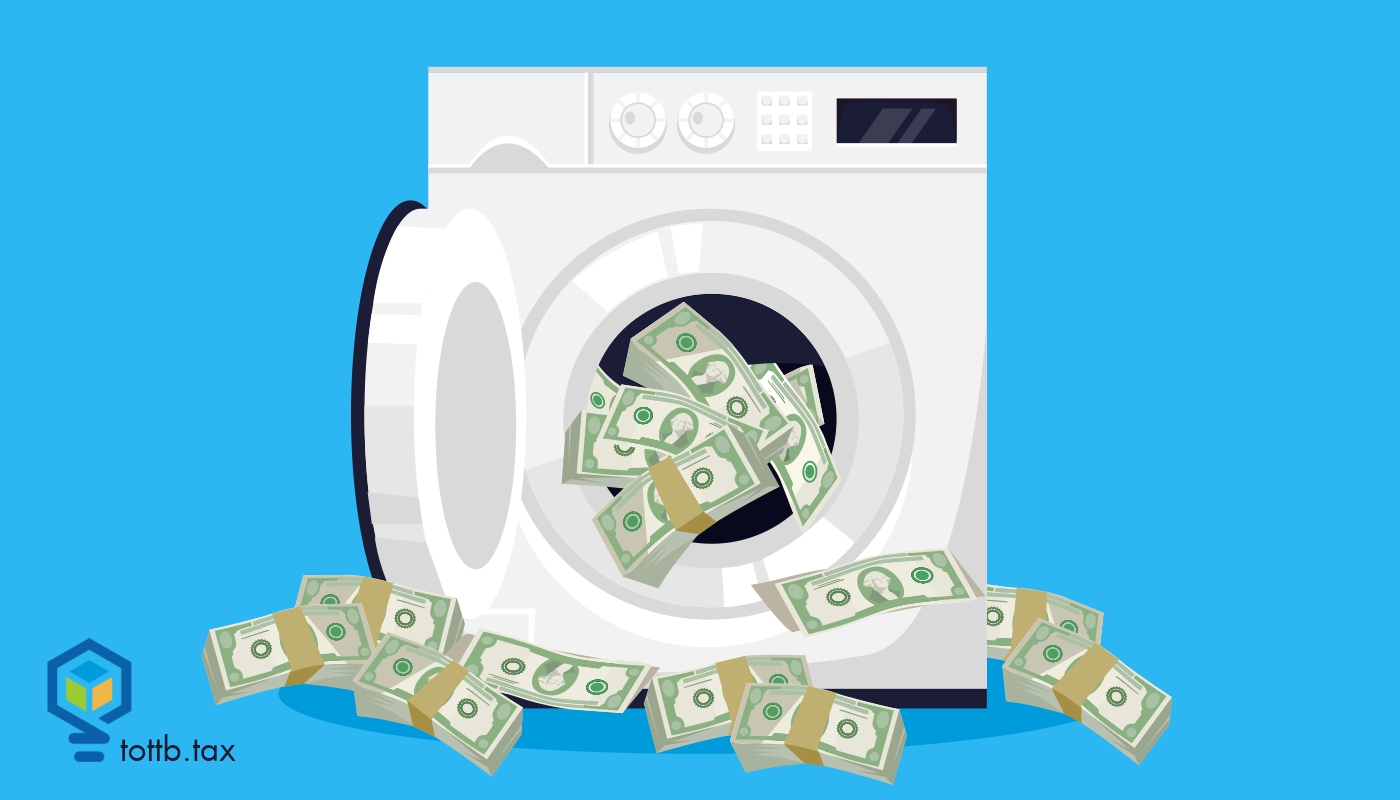CURRENT EDITION

Contracts, Signing Bonuses, and the Substantial Presence Test
In tighter job markets, recruits are often offered signing bonuses (and sometimes moving expenses) to join a firm. Sometimes construction workers temporarily relocate to jobs in other states while they are employed by the company that hired them in their home state. This article reviews some of the foundational tax concepts to consider when evaluating sourcing of income for state tax purposes.
READ MORESmall Biz Faces a Huge New Reporting Reg Next Year
Regulatory tsunamis come in batches. By now, for example, most of you have heard about the tax-reporting requirement slated to kick in next year, where the IRS would've learned about the income of individual taxpayers who made just $600 on the likes of eBay. That sounded like a looming nightmare -- until the IRS suddenly put it off a year two days before Thanksgiving. (Sometimes removing tax regulations without warning creates as much confusion as adding them.) Small businesses aren’t off the regulatory hook that easily for 2024. Come January 1, a new ownership-reporting requirement begins for millions of American companies. Now’s the time to prepare yourself and your company.
Read MoreAppeal Of Collection Due Process Hearing Wipes Out Most of Liability
Joseph Michael Balint had some really hard luck. He was in prison in Florida from December 17, 2013, through January 6, 2015. Fearful of forfeiting assets, he transferred everything to his wife, Jacqueline, and gave her power of attorney early in his prison term. What he had not planned on was her emptying the retirement accounts and leaving him with the tax tab. His luck turned a bit in Tax Court, as we shall see.
Read MoreTAX COURT ROUNDUP – DECEMBER 2023
Despite the five days off for the two Federal holidays this month, there's plenty from Tax Court, for both specialists and general practitioners. No other Court gets as deep into the "wrinkled skin" of US tax law. As always, there's something for (almost) everyone.
Read MoreS Corporation Shareholder-Employee Reasonable Compensation
The S corporation is a powerful tool for small business owners to manage their business efficiently and reduce payroll taxes on owner’s profits. The primary benefit small business owners get, when organized as an S corporation, is the opportunity to avoid payroll taxes on distributions after paying reasonable compensation. A reasonable wage/salary is a must for shareholder-employee/s. However, the shareholder-employee soon discovers that the lower her wage is, the lower the payroll taxes. Why not pay no wage? Or only a token wage? Of course, the IRS knows those tricks and requires the company to pay “reasonable compensation” to shareholder-employees so they’ll submit proper payroll taxes. The IRS can adjust wages to reflect reasonable compensation. Family members of the shareholder must also receive reasonable compensation for services rendered. In this article we will begin by debunking urban legends surrounding S corporation reasonable compensation followed by calculating a reasonable compensation package before finishing with a strategy.
Read MoreThe Ultimate Year End Tip Guide and the Search for the Great Shelter
Coming up on the end of the year, year end planning is kind of a ritual for me. I take my first pass in early November and will do it again no later than December. It is pretty boring. I thought it would be worthwhile to do a survey of a variety of year end tips articles. What is going on here is something like Ahab’s hunt for the great white whale. I am looking for something to help out HENRY. HENRY stands for High Earnings Not Rich Yet. I wrote about the quest in 2019. I found nothing much for HENRY then, and this year’s batch of advice articles really does not offer much. The articles do not all say exactly the same thing, but there is a lot of commonality. Due to the sophisticated nature of the readership of TOTTB, I will just allude to the tips, not explain them in detail, because I am going someplace else with this. There is nothing dramatic for HENRY coming from conventional advisers, which accounts for HENRY’s vulnerability to sketchy tax shelters. I will share a bit about what I have seen in that department and reflect a bit.
Read MoreIRS Again Postpones Tax Reporting of $600 Payments
The federal government is there to reduce taxpayer confusion. That, at least, was one point of the reasoning for the recent IRS decision to again postpone a $600 tax-reporting threshold for people paid via third-party settlement networks. Those who made that amount on the likes of eBay and other online sales sites and who received payment via such platforms as PayPal and Venmo will not have that money reported to the IRS for another year. Does this really let taxpayers off the hook? What strategies should you adapt for when the IRS does mandate this reporting?
Read MoreMastering Email Marketing for Accountants: Strategies for Effective Client Communication
I knew little about email marketing when I started my entrepreneurial journey in 2018. I used emails to communicate regularly with team members, vendors, board members, etc. Little did I know that having an email list of prospects and effective campaigns are a way to grow revenues. We are in a time when digital communication, specifically email marketing, has been and continues to be one of the most potent tools for business owners, especially accountants, seeking to enhance client relationships and drive business growth. Many perceive that our accounting industry is traditional; however, we’ve finally included marketing in our world and established new avenues for engagement. Here, I will shed light on the crucial role of email marketing in the accounting sector and provide actionable strategies for effective client communication.
Read MoreStaying Afloat in Tax Seas: Understanding the IRS’s Moratorium on ERC
Question: Should I even bother assisting my clients with filing new ERC claims? Answer: In light of the IRS's recent moratorium on processing new Employee Retention Credit (ERC) claims and the introduction of a withdrawal option for certain employers, it's understandable that you might be wondering whether to assist your clients with filing new claims. The answer, like a well-prepared tax return, is nuanced and deserves a detailed examination.
Read MoreNOT A MEMBER YET?

SUBSCRIBE TO GET ALL OF OUR
GREAT ARTICLES AND RESOURCES!
CURRENT EDITION

Contracts, Signing Bonuses, and the Substantial Presence Test
In tighter job markets, recruits are often offered signing bonuses (and sometimes moving expenses) to join a firm. Sometimes construction workers temporarily relocate to jobs in other states while they are employed by the company that hired them in their home state. This article reviews some of the foundational tax concepts to consider when evaluating sourcing of income for state tax purposes.

Help Clients Rebuild Tax Records After Disaster
Tax pros help clients with a lot of catastrophes: wrangles with tax authorities, paltry nest eggs, more wrangles with tax authorities. More frequently, your clients might face a more tangible and cinematic disaster. These days, there’s always a storm comin’. Swept away in that destruction, for many people, are physical tax and financial records. A few precautions could have prevented such loss and made life at least a bit easier for victims. Here’s how to help clients head off trouble – and recover after it hits.

George M. Cohan’s Tax Triumph: The Rise and Erosion of the Cohan Rule
The Cohan rule is named for George M. Cohan. George Michael Cohan (1878 – 1942) was a theatrical producer. In the decade before World War I, he was called the “man who owned Broadway” and is considered the father of American musical comedy. In 1940 he was awarded the Congressional Gold Medal for his contribution to morale during World War I with his songs “You’re a Grand Old Flag” and “Over There,” the first time the medal was awarded to someone in an artistic field. But his most enduring legacy may be the tax rule that shared its name.









